Smarter Balanced
How the Brain Works
Cerebrum, cerebellum, brainstem, pituitary gland, and spinal cord. Prepare your class for a performance task assessment on the brain and how it works with a scripted plan that defines these terms and identifies the functions the...
Rainer Goebel
Brain Tutor 3D
The human brain is staggeringly complex, and its structure can seem impossible to grasp. This user-friendly app allows for exploration of the brain's anatomy, providing nomenclature, 3-D mapping, and functions.
Curated OER
Mind Mapping
Students explore the functions of the brain. They create their own "live" model comparing a phrenology chart to our modern understanding of brain function and anatomy. Students compare and contrast brain models.
Curated OER
What's Wrong?
Students analyze case studies to explore similarities and differences among illnesses. PET images are examined to explore how scientists investigate the changes in the way the brain functions during depression.
University of Minnesota
Altered Reality
Fascinate young life scientists by showing them how their brain learns. By using prism goggles while attempting to toss bean bags at a target, lab partners change their outlook on the world around them, producing amusing results....
Curated OER
Knowing Your Computer
In this computers instructional activity, students examine the eight parts of a computer and ask for adult help to define the functions of each piece of hardware.
Curated OER
The Nervous System
In this nervous system worksheet, 9th graders define each term listed and then label the figure shown pertaining to the nervous system. Then they name three types of neurons and describe the function of each type.
Curated OER
Sheep Brain Lab
For this sheep brain lab, students identify the internal and external anatomy of a sheep's brain. Students complete several tables describing the function of given structures. Students also label the brain with 5 chosen structures.
Teach Engineering
Complex Networks and Graphs
Show your class how engineers use graphs to understand large and complex systems. The resource provides the beginnings of graph theory by introducing the class to set theory, graphs, and degree distributions of a graph.
Curated OER
The Systems of the Body: How they Work
Young scholars study what a body system is, how they function and how the systems work in unison.
Curated OER
Inside the Cranium: Neuropsychiatric Disorders
Students analyze different regions of the brain which are responsible for different aspects of cognition, awareness and regulating the body's process.
Curated OER
Biology Trivia Questions
Students answer 71 questions about a variety of topics in biology. In this biology trivia lesson plan, students use the internet to find the answer to questions about the systems of the body, their structures and functions, the different...
Curated OER
Oh, Say Can You See
Students explore different parts of the eye and functions of each part through a video and a dissection of a cow's eye. They discover different causes of blindness.
Curated OER
Central Nervous System Study Questions
In this central nervous system worksheet, learners define 24 terms associated with the human central nervous system. They answer 28 short answer questions dealing with the structures and function of the CNS.
Curated OER
Introduction to Psychology and Sigmund Freud
Students learn about psychology. In this unconscious mind lesson, students examine the life and theories of Sigmund Freud. Students define psychoanalysis, the conscious mind, the unconscious mind, Freudian slips, the ego, the...
Curated OER
Writing Exercise: How to Spot a Loser Sentence
In this writing skills instructional activity, class members read sentences about developmental psychology that need revisions and then revise them in order to make them better. The 11 sentences range from the humorous to the...
Curated OER
Skeletal System
Third graders describe and identify the parts of the skeleton and how they support the body. They observe two chicken bones that have been soaked in vinegar for 5 - 7 days. They observe the bone's appearance after it has been removed...
Curated OER
Protein Synthesis Activities
Students participate in a teacher-guided activity to teach about protein synthesis. Student roles include one person as the DNA molecule, another is a single stranded sequence of complementary mRNA.
Curated OER
Exploring the Nervous System Through Disease and Injury
Students are introduced to the nervous system. In groups, they research the relationship between disease and injury and how it affects the nervous system. To end the lesson, they present their findings to the class and create a poster.
Curated OER
Protein Synthesis Activities
Young scholars compare the process of protein synthesis in an analogy. They simulate the process of protein synthesis kinesthetically using index cards and write a paragraph to explain the process.
Curated OER
Diversity And Adaptations Of Organisms
Seventh graders demonstrate the processes of science by posing questions and investigating phenomena through language, methods and instruments of science. They study the body features or systems of several animals.
Curated OER
The Chemistry Connection
In this proteins worksheet, students read about the chemical compound, protein. Students determine where proteins are found in the body and how enzymes help the body react. Then students complete 3 short answer questions.
Curated OER
Land Use Issues
For this unit of lessons, students examine analogies and parts of speech. They use land use issues to identify the different parts of speech that they research. They create analogies about the origin of organisms.
Other
Wise Brain: Noble Eightfold Path: Right Mindfulness [Pdf]
WiseBrain, maintained by neuropsychologist Rick Hanson, Ph.D., provides access to articles on Buddhist wisdom and insight. Follow this link to Hanson's explanation of right mindfulness, one of the elements of the Eightfold Path, which...

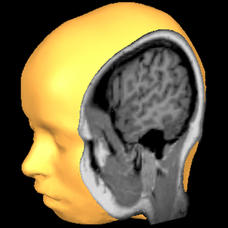
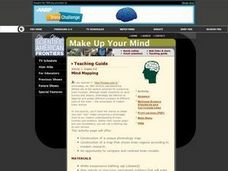

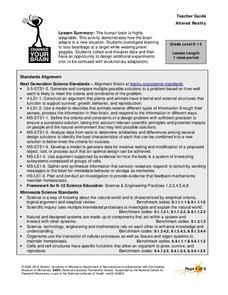


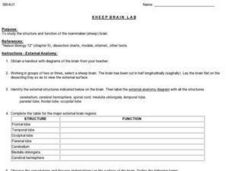

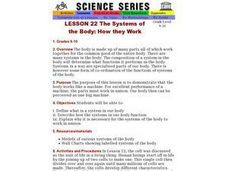
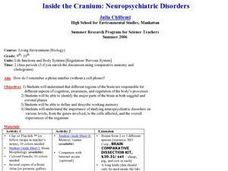





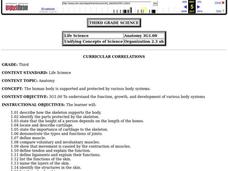


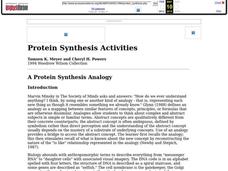



![Wise Brain: Noble Eightfold Path: Right Mindfulness [Pdf] Website Wise Brain: Noble Eightfold Path: Right Mindfulness [Pdf] Website](https://d15y2dacu3jp90.cloudfront.net/images/attachment_defaults/resource/large/FPO-knovation.png)